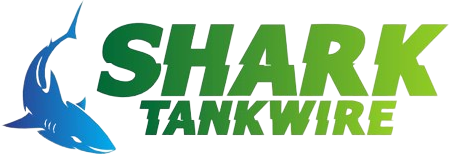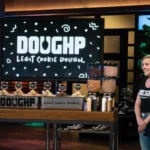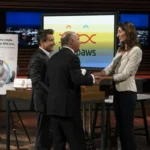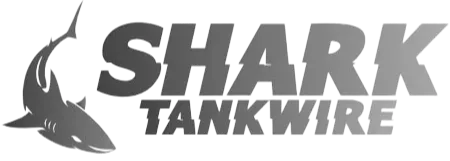Did Salad Sling secure an investment on Shark Tank Season 12? No, Salad Sling did not receive an investment during their appearance on Shark Tank Season 12.
Summary
- Salad Sling, a vegetable drying and salad tossing towel, was featured on Shark Tank Season 12.
- The entrepreneurs sought $100,000 for a 20% stake in their company.
- Despite their innovative product and passionate pitch, they did not receive an investment from the Sharks.
- The article will explore the reasons behind the Sharks’ decision and provide an update on Salad Sling’s progress since their Shark Tank appearance.
- It will also discuss the lessons learned from their experience and the potential future for the company.
Salad Sling Shark Tank Update | Shark Tank Season 12
Salad Sling is an innovative kitchen tool designed to streamline the process of drying and tossing salads.
Crafted from a unique blend of absorbent and breathable fabrics, it efficiently removes excess moisture from freshly washed greens, ensuring a crisp and flavorful salad.
The towel’s generous size and clever design also make it ideal for tossing salads with dressings, eliminating the need for bulky bowls and utensils.
Salad Sling’s Shark Tank Pitch
Salad Sling made its debut on Shark Tank during Season 12, Episode 16, which aired on March 19, 2021.
| Entrepreneurs | Linda Hopkins and Jason Hopkins |
|---|---|
| Business | Salad Sling |
| Ask | $100,000 for 20% equity |
| Deal | No deal |
| Sharks | Mark Cuban, Kevin O’Leary, Lori Greiner, Robert Herjavec, Daymond John |
| Season | Season 12 |
| Original Air Date | March 19, 2021 |
| Website | Salad Sling |
| Key Points of the Pitch |
|
| Why Sharks Declined |
|
The Outcome: No Investment
Despite a passionate presentation and a product with clear benefits, Salad Sling did not secure an investment from the Sharks.
The panel expressed concerns about market validation, scalability, and the product’s ability to stand out in a crowded market.
While they acknowledged the innovation behind Salad Sling, they ultimately felt the business wasn’t a strong enough investment opportunity at that time.
Why Didn’t the Sharks Invest?
1. Sharks’ Feedback and Concerns
The Sharks, although acknowledging the innovation and practicality of the Salad Sling, expressed certain reservations during the pitch:
- Market Validation and Scalability: A key concern was the size and potential of the market for a dedicated salad drying and tossing tool. The Sharks questioned whether the product solved a widespread problem or merely catered to a niche audience. They also pondered the scalability of the business, particularly regarding manufacturing and distribution.
- Competitive Advantage: The Sharks felt that the Salad Sling lacked a strong competitive advantage. While unique, they worried it could be easily replicated or replaced by existing kitchen tools. They were looking for a product with a more distinct and defensible position in the market.
- Long-Term Viability: Some Sharks expressed doubts about the product’s long-term viability. They questioned whether it would maintain consumer interest and generate consistent sales over time. They sought a product with broader appeal and enduring market potential.
2. Potential Reasons Behind the Decision
Based on the Sharks’ feedback, a combination of factors likely influenced their decision not to invest in Salad Sling:
- Lack of Proven Market Demand: The Sharks prioritize investments in businesses with demonstrated market traction. Salad Sling, at the time of the pitch, may not have possessed enough sales data or customer feedback to assure the Sharks of its market potential.
- Limited Competitive Differentiation: In a competitive market, products need a clear and compelling differentiator to stand out. The Sharks might have felt that Salad Sling’s unique features were not strong enough to create a sustainable competitive advantage.
- Scalability Concerns: Scaling a product-based business requires efficient manufacturing, distribution, and marketing strategies. The Sharks might have perceived challenges in these areas, affecting their confidence in the business’s growth potential.
3. Common Challenges Faced by Entrepreneurs
Salad Sling’s experience underscores several common challenges entrepreneurs face on Shark Tank and in the business world in general.
- Market Validation: Proving market demand is essential to attract investors. Entrepreneurs need to demonstrate that their product or service solves a genuine problem and has a viable customer base.
- Competitive Landscape: Understanding the competitive landscape and articulating a clear differentiator is crucial. Businesses need to showcase what sets them apart and makes them a compelling investment.
- Scalability: Investors look for businesses with the potential for significant growth. Entrepreneurs need to have a clear plan for scaling their operations and reaching a larger market.
While Salad Sling didn’t secure an investment on Shark Tank, their appearance provided valuable exposure and feedback. The experience likely offered insights to refine their business strategy and continue pursuing their entrepreneurial aspirations.
Salad Sling Update: Life After Shark Tank
1. Current Status of the Company and Product
While concrete details about Salad Sling’s current status are limited due to the nature of private businesses, it appears the company is still operating and the product remains available for purchase.
The Salad Sling website is active and showcases the product’s features and benefits.
2. Developments and Pivots
Specific information about developments or pivots since their Shark Tank appearance isn’t readily available.
However, the company’s continued presence suggests they have adapted and persevered in a competitive market.
They may have refined their marketing strategies, expanded their product line, or explored new distribution channels to reach a broader audience.
3. Sales Figures, Customer Feedback, and Growth
Precise sales figures and growth metrics are not publicly disclosed by Salad Sling. However, customer feedback on various platforms suggests a positive reception for the product.
Many users praise its functionality, convenience, and effectiveness in drying and tossing salads. This positive feedback indicates that Salad Sling has found a loyal customer base and continues to provide value in the kitchen.
While Salad Sling may not have achieved the explosive growth that a Shark Tank investment could have fueled, they appear to have carved out a niche in the market and continue to serve customers who appreciate their innovative product.
Their resilience and adaptability demonstrate the entrepreneurial spirit that brought them to the Shark Tank stage in the first place.
Lessons Learned and Future Outlook
1. Key Takeaways from Salad Sling’s Shark Tank Experience
Salad Sling’s Shark Tank journey, though it didn’t result in an investment, likely offered valuable lessons:
- Market Validation is Crucial: The Sharks’ emphasis on market validation highlights its importance. Proving there’s a genuine need and demand for a product is vital for attracting investors and achieving sustainable success.
- Competitive Differentiation Matters: Standing out in a crowded market requires a clear and compelling differentiator. Businesses need to clearly articulate what sets their product apart and why it’s a superior choice for consumers.
- Scalability is Key: Investors seek businesses with the potential for significant growth. Demonstrating a well-defined plan for scaling operations and reaching a larger market is crucial for securing investment and long-term success.
2. Applying Lessons to Business Strategy
While specific details about Salad Sling’s strategic adaptations aren’t publicly available, their continued operation suggests they’ve learned from their Shark Tank experience:
- Focusing on Market Validation: They may have actively gathered customer feedback and sales data to solidify proof of market demand. This could involve conducting surveys, analyzing sales patterns, or engaging with their target audience through social media and other channels.
- Strengthening Competitive Differentiation: The company may have refined their marketing messaging to emphasize the unique benefits of Salad Sling and highlight how it surpasses alternative solutions.
- Exploring Scalability Options: They might have investigated partnerships, streamlined their manufacturing process, or expanded their distribution channels to facilitate growth and reach a broader audience.
3. The Company’s Vision and Potential for Success
Salad Sling’s future vision likely revolves around establishing itself as a go-to kitchen tool for salad enthusiasts. By focusing on customer satisfaction, product innovation, and strategic growth, the company has the potential to achieve lasting success.
Despite not receiving a Shark Tank investment, Salad Sling’s journey serves as an inspiration for aspiring entrepreneurs. It highlights the importance of resilience, adaptability, and a willingness to learn from setbacks.
With continued dedication and strategic execution, Salad Sling can continue to grow and thrive in the competitive market.
FAQs
Did Salad Sling get a deal on Shark Tank?
No, Salad Sling did not secure an investment from the Sharks during their appearance on Shark Tank Season 12.
What is the current status of Salad Sling?
Salad Sling is still in business and their product is available for purchase through their website. While specific details on their growth and financial performance aren’t publicly available, customer feedback suggests a positive reception for the product.
Where can I purchase a Salad Sling?
You can purchase a Salad Sling directly from their official website.
What lessons can entrepreneurs learn from Salad Sling’s experience?
Salad Sling’s journey underscores the importance of market validation, competitive differentiation, and scalability for attracting investors and achieving sustainable success. It also highlights the value of resilience, adaptability, and learning from setbacks in the entrepreneurial journey.
The Bottom Line
Salad Sling’s Shark Tank experience, although it didn’t result in an investment, offers valuable insights for both entrepreneurs and consumers. It serves as a reminder of the challenges and opportunities that come with launching and growing a business.
While Salad Sling faced hurdles in convincing the Sharks of their market potential and scalability, they continue to operate and provide a unique product to customers who appreciate its benefits. Their story demonstrates the importance of perseverance, adaptability, and a customer-centric approach in the ever-evolving business landscape.








